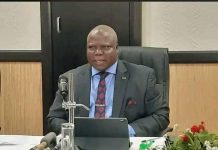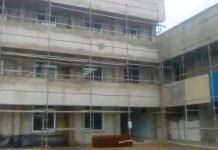Africa-Press – Malawi. Government continues to sweat to recover loans disbursed under the Decent and Affordable Housing Subsidy Programme (Dahsp), also known as Malata Subsidy Project, The Daily Times has established.
Former president Peter Mutharika launched Dahsp on December 19 2014 in Msampha 1 Village, Traditional Authority Chadza in Lilongwe, as a revolving programme, where beneficiaries were supposed to repay half of the total cost of constructing their decent houses.
As at now, the loan recovery rate under the project has sunk from 2.3 percent last year to 1.63 percent this year. But, in an interview Thursday, Secretary for Lands Davie Chilonga said the ministry is putting in place strategies that will facilitate the enforcement of loan collection.
He said, so far, about K174 million has been collected against a total disbursement of K10 billion. Chilonga was, however, quick to note that the design of the project was problematic to ensure timely compliance to repayments.
“However, several measures have been taken to encourage loan repayment— for example, an initiative was taken to put a message on the radio to encourage loan beneficiaries to honour loan repayments. The message will start being aired this week.
“The staff to oversee repayments is also being strengthened in the ministry,” Chilonga said. Speaking at the launch of the programme, Mutharika said adequate and decent housing is a catalyst for sustainable development.
“It is, therefore, a given fact that lack of adequate housing compromises development and eventually leads to the escalation of many social ills that usually arise from homelessness,” Mutharika said.
Commenting on the weak recovery rate, Centre for Social Accountability and Transparency Executive Director Willy Kambwandira blamed politics for beneficiaries’ failure to repay the loans.
“The challenge with these social protection programmes is that they are highly politicised and the identification of beneficiaries is mostly based on political affiliation and patronage. In the end, responsible entities tolerate lack of transparency and accountability by not enforcing laws.
“While these are good social protection programmes, they are largely abused by politicians, who pretend that the initiatives are loans when, in fact, the aim is to gain political mileage. Government has just to come out boldly and tell Malawians that these are grants,” Kambwandira said.
A total of K12.6 billion was set aside to help poor Malawians in 193 constituencies build decent houses. Between 2015 and 2019, the programme reached out to at least 37,781 beneficiaries before it was suspended by the Tonse Alliance administration, citing rampant abuse.
For More News And Analysis About Malawi Follow Africa-Press






